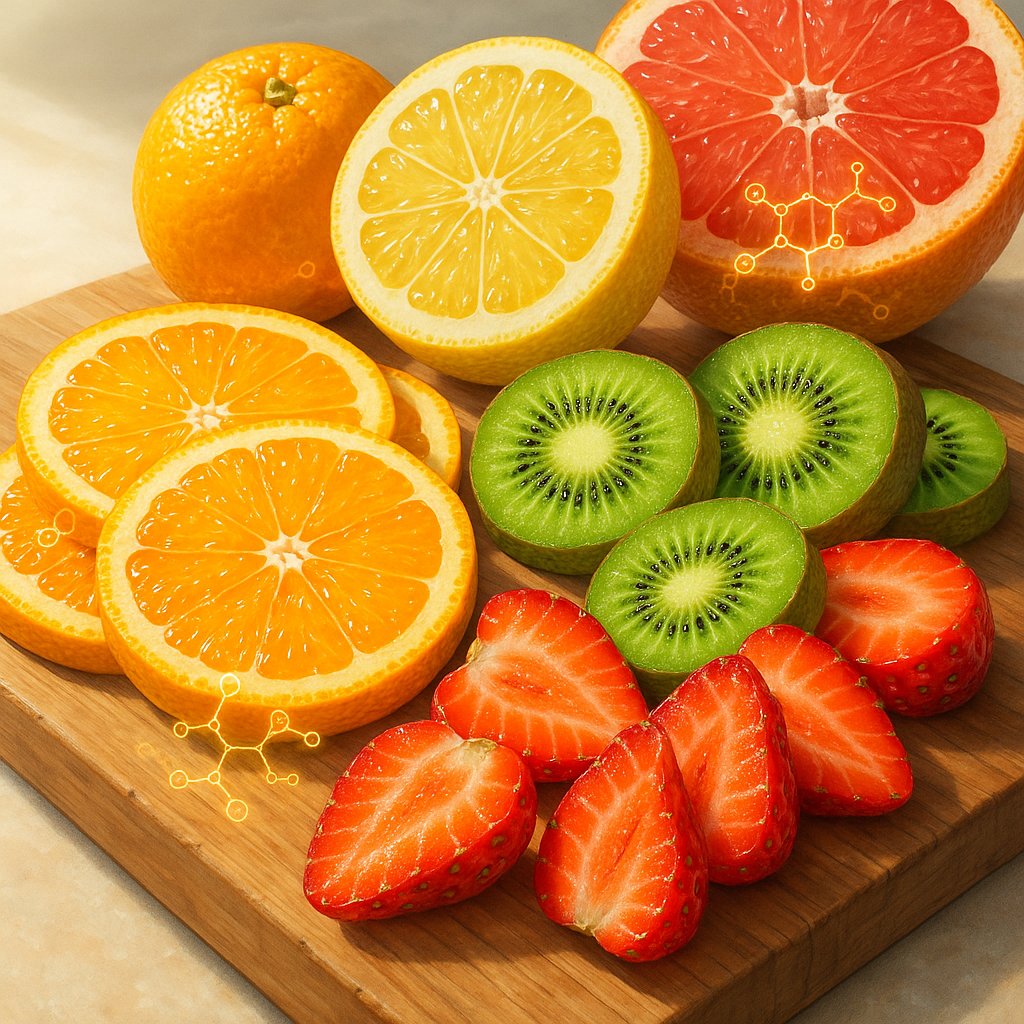Is Citrus Bioflavonoid the Same as Vitamin C? No, citrus bioflavonoids are not the same as vitamin C. While both are present in citrus fruits and often paired in supplements, vitamin C is an essential nutrient (ascorbic acid), and citrus bioflavonoids are a group of beneficial plant compounds. Understanding their differences helps you choose the right supplements and maximize health benefits.
Why it matters: Vitamin C is required for immune function and tissue health, while bioflavonoids support antioxidant action, capillary strength, and vitamin C absorption. Many high-quality supplements combine them for optimal results. Here’s what you need to know about their differences, benefits, and how to use them together safely.

For official details, refer to the NIH Vitamin C Fact Sheet and MedlinePlus on Bioflavonoids.
What is Vitamin C?
Vitamin C (ascorbic acid) is a water-soluble vitamin that the body needs daily for:
- Collagen formation (skin, bones, blood vessels)
- Wound healing
- Absorbing iron from plant-based foods
- Immune system function
- Powerful antioxidant protection
Most adults need 75–90 mg per day. Foods rich in vitamin C include oranges, strawberries, kiwi, and bell peppers. Deficiency can lead to scurvy, but excess intake may cause mild digestive upset (NIH, 2024).
What Are Citrus Bioflavonoids?
Citrus bioflavonoids are plant-derived compounds found in the peels, pulp, and white membranes of citrus fruits. They include:
- Hesperidin (mostly in oranges and lemons)
- Naringin (in grapefruits)
- Rutin
- Quercetin
Bioflavonoids are not considered essential nutrients, but they act as antioxidants, support capillary strength, may reduce inflammation, and can enhance the effects of vitamin C (Healthline, 2024).
Are Citrus Bioflavonoids and Vitamin C the Same Thing?
No, they are different:
- Vitamin C is a single, essential vitamin.
- Bioflavonoids are a group of plant compounds, not vitamins, though often found with vitamin C in nature.
They work together in the body:
- Bioflavonoids help your body absorb and use vitamin C more efficiently.
- Studies show supplements containing both may have superior antioxidant effects compared to vitamin C alone (Verywell Health, 2024).
Health Benefits of Taking Vitamin C and Citrus Bioflavonoids Together
1. Enhanced Antioxidant Power
Both neutralize free radicals, but together, their effect is stronger.
2. Improved Capillary and Vascular Health
Bioflavonoids reinforce capillaries and blood vessels, reducing bruising and swelling.
3. Immune Support
Vitamin C supports white blood cell activity; bioflavonoids further support immune response.
4. Better Vitamin C Absorption
Research suggests citrus bioflavonoids may increase vitamin C’s bioavailability by up to 35% (Naturelo, 2024).
Table: Key Differences
| Feature | Vitamin C | Citrus Bioflavonoids |
|---|---|---|
| Nutrient Type | Essential vitamin | Plant-derived compounds |
| Found In | Citrus & many fruits/vegetables | Mainly citrus peels, membranes, pulp |
| Daily Need | Yes, recommended daily | Not required, but beneficial |
| Health Benefits | Immunity, collagen, antioxidant | Antioxidant, capillary strength, support |
| Synergy | Works better with bioflavonoids | Enhances vitamin C action |
Recent Policy & Product Updates
- As of 2024, many leading supplement brands combine 500–1000mg vitamin C with 100–200mg citrus bioflavonoids per serving.
- The FDA and NIH advise reading supplement labels carefully, as products may vary in quality and ingredient transparency.
- No current U.S. RDA for bioflavonoids, but ongoing studies are examining their role in chronic disease prevention (NIH, 2024).
FAQs: Common Concerns
Is it safe to take both together?
Yes, in recommended doses. Both are naturally found together in citrus fruits. Most people tolerate them well, but always consult a healthcare provider if you have underlying conditions or are on medication.
Can I get enough from food alone?
Most people can get both vitamin C and bioflavonoids by eating a variety of fruits and vegetables—especially whole citrus fruits, including some peel and pith.
Are there side effects?
Vitamin C is generally safe up to 2,000mg/day. Very high doses may cause digestive upset. Bioflavonoids are safe for most adults at supplemental levels, but consult your doctor if pregnant, breastfeeding, or taking prescription medications.
Conclusion
Vitamin C and citrus bioflavonoids are not the same—but together, they offer superior antioxidant and health support. For optimal benefits, include a variety of fruits and vegetables in your diet, or choose supplements that list both vitamin C and bioflavonoids.
Ready to boost your health?
Check your supplement label for both ingredients, or simply enjoy more whole citrus fruits every week. For guidance on the best products, consult a registered dietitian or healthcare provider.
